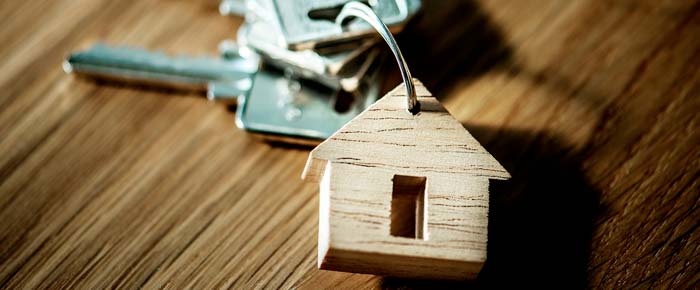The truth about mortgages & rates

There are many things to look into when buying a property; including how you will pay, getting a home loan, and finding the right type of property that suits your needs.
House prices & rates
Here in New Zealand houses that set to be sold' prices are being negotiated between the buyer and seller or by auction or tender.
An indication of the price the seller wants is sometimes given, for example, BBO $320,000 means Buyer’s Budget Over $320,000 or another indication of price is the government valuation (GV) or rateable value (RV). You can pay for a valuation report from a registered valuer or get online property information from the government agency.
Home loans (or mortgages)
When you're looking to buy a house you will need a home loan or also known as a mortgage, to pay for it. People usually go to a bank for loans and use their new property as their security/collateral. If you are not from this country, you will not have a New Zealand credit rating which makes it difficult to get a loan.
The mortgages here are given by banks and a variety of lenders including building societies, finance companies and specialist home loan companies. You can approach these lenders and banks directly or use a broker who can help you with a negotiation. Generally the broker doesn’t cost you a fee, but not all lenders deal with brokers.
Banks require a deposit of 20% of the house price at least. If you have sold your house before moving or have other savings money, think about using that to help pay for your new home. This means you need to ask the bank for less money and they will be more likely to say yes.
What to do when applying for a home loan
Bring documents from home
The bank wants to know all about your financial history. So bring as much information with you as you possibly can. Make sure you have at least the latest 3 months’ worth of bank and loan statements. This shows whether you were in a good financial situation before migrating.
If the bank is not sure about your past, they can get an international credit check. This reveals any bad debts you left behind, so be honest about any past problems.
Prove that you can make payments
Bring your documents that clearly show how much income you have in New Zealand. The bank wants to see that you make enough money to cover your loan payments plus the other expenses you have. If you have other sources of income other than your job, bring those documents to show how much you earn.
Show them your assets
If you don’t have a large income, you can get a mortgage if you have other assets. If you own a property in your home country or have other investments that you could use as a form of asset, this will show the bank that they will be able to get their money back from you.
There is more than one type of mortgage available in New Zealand:
Table loans
Most of the early repayments that you make pay the interest and the later payments pay off the principal.
Revolving credit loans
These loans work like a large overdraft. Your income goes straight into the account and your bills are paid out of it. This helps to keep your loan as low as possible and is reducing the interest you pay at the same time.
Straight line or reducing loans
You repay the same amount of principal with each payment, but the amount of interest you pay reduced over time.
Interest-only
With this loan, you don’t repay the money you have borrowed until the agreed time, but you still pay interest.
The main type of interest rates
Fixed and floating rates are the 2 main types of interest rates. Get to know how these interest rates work before deciding on which interest type to take up. The fixed rates will remain the same amount for the agreed term. Floating rates will go up or down according to trading markets.
Specialised conveyancing lawyers
Although it is not a requirement to have a lawyer, it can be a good idea if you are not familiar with these processes. You may hire a lawyer in the early process so you have someone to help you when you find a property. The lawyer you hired will handle the legal side of the transaction and charge $600-$1000 for standard conveyancing.
Your lawyer may help you negotiate a purchase price, check the contract, complete a title search and arrange the payments. They will also advise you about tax implications and keeping you informed of your risks, rights, and obligations throughout the process. There are lists of specialised conveyancing lawyers available.
Origination fees
Lenders use their funds when extending mortgages, they usually charge an origination fee of 0.5% to 1% of the loan value, which is due to mortgage payments. This fee increases the interest rate paid on a mortgage and the total cost of the home, for example, a $200,000 loan with a 6% interest rate over 30 years has a 2% origination fee.
The buyer pays the fee of $4,000, along with other applicable fees when closing on the loan. Monthly mortgage payment of 6% on $200,000, is $1,199. However, when adding the origination fee of $4,000 and dividing it out over the 30 year loan period, the payments increased by $11.11 per month for a monthly payment of $1,210.
The homeowner pays an 8% interest rate rather than the 6% rate. The higher interest rate results in more of the owner's money that is going towards the mortgage and significantly increase the overall cost of the loan.
Key pointers and tips
Lenders make their money in different ways, like origination fees, yield premiums, discount points, closing costs, mortgage-backed securities, and loan servicing.
Closing costs fees that lenders make money from include application, processing, underwriting, loan lock, and other fees. Yield spreads include the rate that a lender pays for money they borrow from larger banks and the rate they charge borrowers.
Mortgage-backed securities will allow lenders to profit by packaging and selling loans. Lenders also get money for servicing the loans they package and sell.
Mortgage lenders use funds that they borrowed money from a larger bank with lower interest rates to extend loans.
The difference between the interest rate that the lender charges homeowners for a mortgage and the rate the lender pays for replacing the money borrowed is the yield spread premium, for example, the lender borrows at 4% interest and extends a mortgage at 6% interest, earning 2% in interest on the loan.
Discount points and rewards
There is a part of a loan known as a discount point. This is due at the closing of the buy to help you down with the mortgage interest rate. On 1 discount point, it equals 1% of the mortgage amount and may reduce the loan amount 0.125% to 0.25%, for example, 2 points on a $200,000 mortgage is 2% and of the loan, the amount would be $4,000.
Paying points up front lowers your monthly loan payments, which saves the homeowners money over the life of the loan. The extent to which the interest rate is lowered depends on the lender, type of mortgage and market conditions. Homebuyers should be sure to have lenders explain to them how paying discount points impact the interest rate on their mortgage.
Closing costs
In addition to the loan origination fee, an application fee, processing fee, underwriting fee, loan lock fee, and other fees charged by lenders is paid during closing for the buy. These closing costs may vary by lender, the fees are explained up front.
Homebuyers should always read the list of fees and talk with the lender before deciding on a mortgage to determine whether the home buyer may negotiate certain charges or save money by doing business with another lender.



